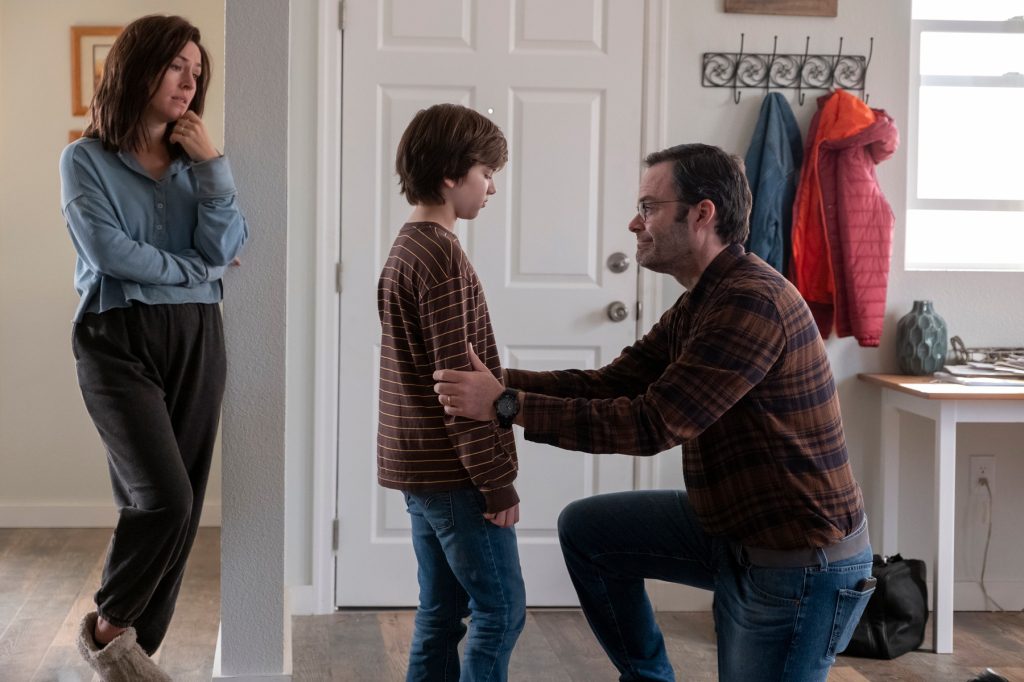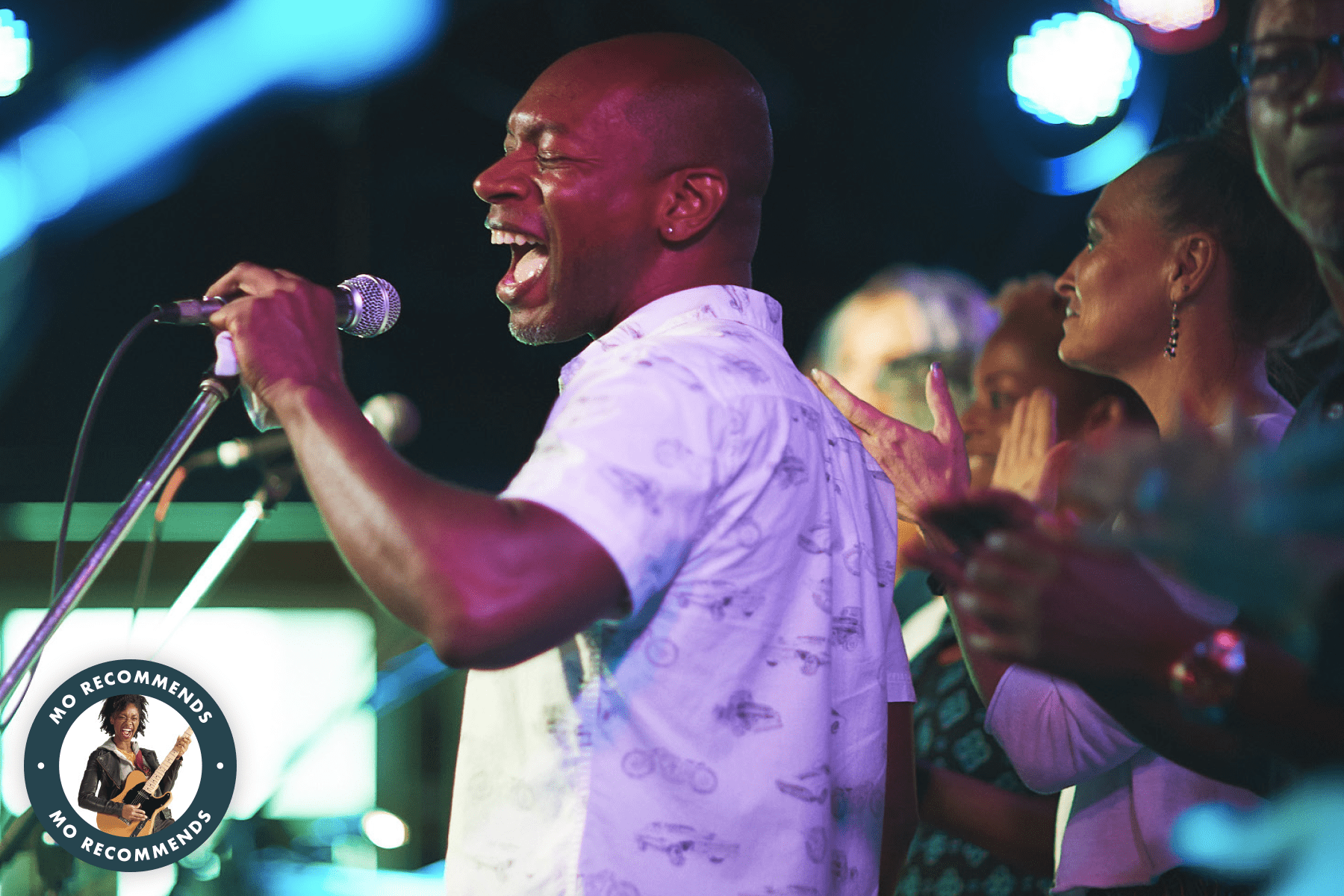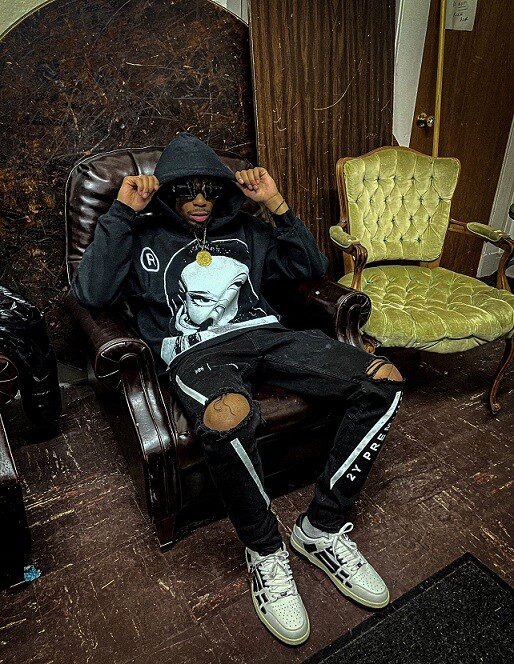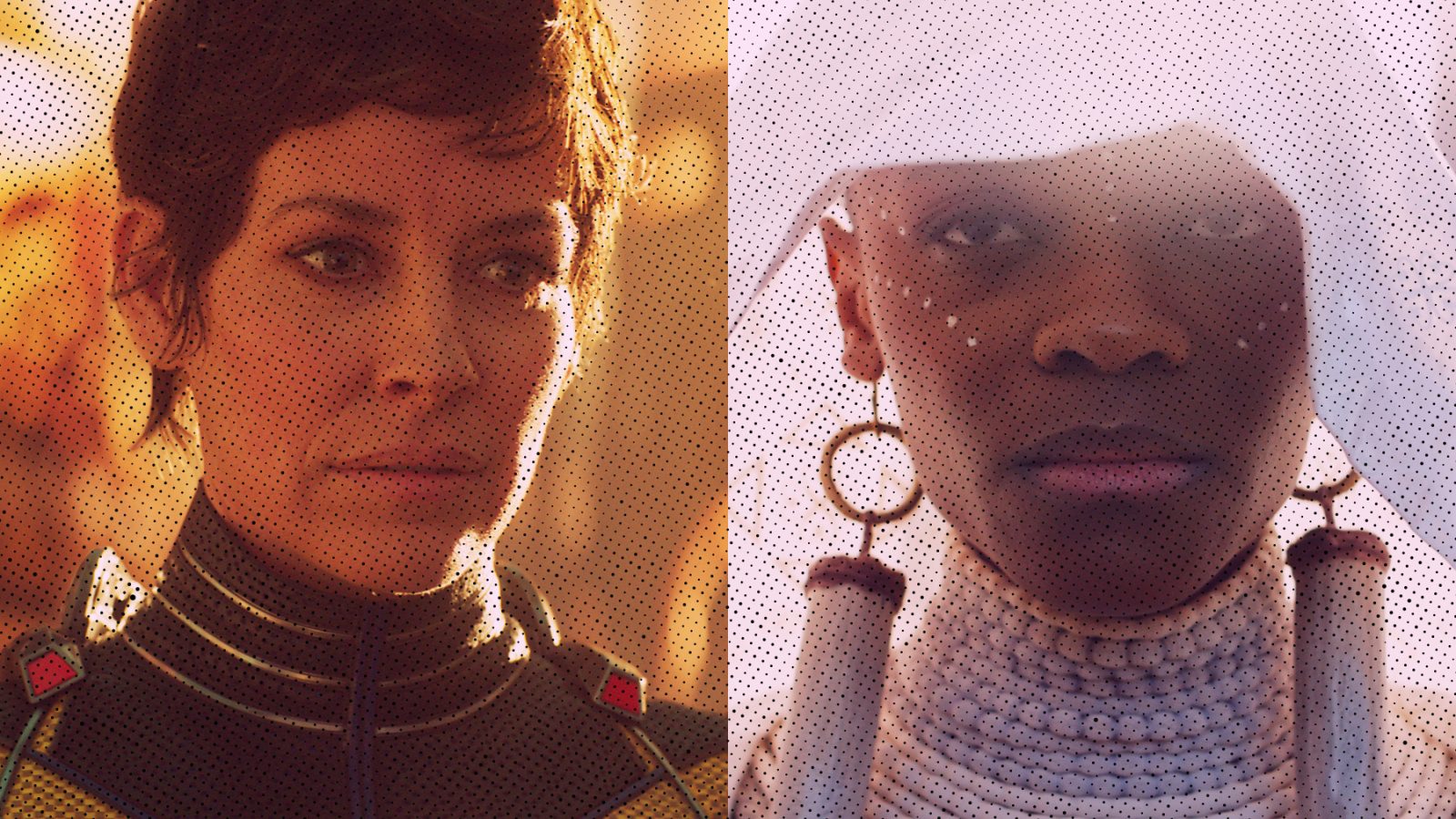
‘Barry’ Recap: Is This the End of the Line for Barry Berkman?
This post contains spoilers for this week’s episode of Barry, “The Wizard.”
Barry spends a good chunk of “The Wizard” listening to different religious podcasts, pastor-shopping for a man of the cloth who will tell him it’s acceptable to murder Gene Cousineau. Eventually, he finds one — voiced, naturally, by comedian Bill Burr — who says it’s okay. But it’s clear by the simple fact of the search that Barry is going to do what he wants to do no matter what, and will eventually find some sort of justification, even if not from an ordained person with a Yeti mic.
“The Wizard” is full of characters discussing things they passionately believe in, even as there is abundant evidence that this is nonsense. Gene brags that he has spent the last eight years on a kibbutz in Israel, which taught him about selflessness and true happiness, which is why he claims to be in town not to help make the Barry Berkman biopic, but to stop it. Yet when he goes to visit his son Leo and grandson Gordon, we learn that he has not seen or spoken with them since he shot Leo through the door of his cabin. That is not something a selfless person does. That is something done by a man who does not want to face the consequences of his actions — even accidental ones, in this case — until he absolutely, positively has to. Yet the visit to Leo is the only thing that spares Gene’s life, since Gordon walks in the door right before Barry can go in guns blazing. And regardless of what a sociopath Barry is in every other way, being The Father Of A Son gives him pause about doing this in front of a kid not that much older than John. (Or, worse, doing it in such a way where Gordon winds up as collateral damage.)
And Barry’s trip to Los Angeles is something of a self-aggrandizing spiritual quest. When Sally suggests they can just run again(*), Barry argues that they can’t run from a movie. But then he admits that he hates that the movie (as far as he knows) will be told from Gene’s point of view, “And that’s… not the truth. And I don’t want our son to see it.” He is going to prove the righteousness of his story, and of his cause. But even that’s malarkey, which Sally can see when she points out that Barry is just going because Gene turned him in.
(*) Where is their money coming from? Barry did a lot of work for the Chechens, but it was unclear how much of it Fuches was actually giving him. And they’ve been on the lam for eight years, and apparently relocated multiple times in that span. Yet they have a nice — if completely isolated — house, are constantly ordering from Amazon, etc. Even with Sally stealing from the till, waitressing’s not enough to cover a fugitive lifestyle like this.
Fuches, meanwhile, has become something of a religious figure himself. Eight years after Barry escaped — and after Fuches endured a vicious beating from the guards without giving up his friend’s whereabouts — he has now transformed himself into the Raven in reality, with a huge raven tattoo below his neck, a vastly more confident physical manner, a prison wife (and prison stepdaughter) just waiting for him at the coffee shop where she works, and a gang of eager acolytes who will do anything the Raven tells them to. Like Barry and like Gene, much of this is based on lies and misunderstandings — Fuches didn’t talk because he didn’t know where Barry had gone, and all of the Raven’s previous crimes were committed by Barry — but he can talk the talk well enough that everyone assumes he can walk the walk.
And this in turn brings him back to NoHo Hank, who is now running his own conglomerate, NoHoBal, named after himself and his late partner. But even though he has a bronze statue of Cristobal in the lobby of his headquarters, this is an empire built on literal and figurative sand. Like Barry with his conversion to some extremely specific and useful version of Christianity, Hank has allowed himself to pretend that the terrible thing at the birth of NoHoBal did not actually happen — or, at least, that he was not involved, and does not deserve the blame. (He and Gene would get along very well.) And when Fuches starts cracking jokes about it at the McMansion where Hank has situated the whole flock of Ravens(*), it turns these old allies into mortal enemies in an instant.
(*) Also known, appropriately enough, as an unkindess of ravens.
All of this is very effective, and at times — particularly anything involving Stephen Root swaggering around in a very tight undershirt — quite funny, and a relief from the unrelenting bleakness of last week’s episode. Barry leaves Sally and John behind in their Midwestern hellhole, where they are part of an at times riveting, at times baffling sequence late in the episode. Sally, as we know from last week, utterly hates this life she chose, and doesn’t seem to have much affection for her son, whom she drugs by slipping booze into his juice cup so she doesn’t have to listen to him crying anymore over his absent dad(*). And she gets fairly drunk herself, on top of whatever PTSD she has been dealing with since long before we met her, but especially since she killed a man in the Season Three finale.
Sarah Goldberg, Zachary Golinger, Bill Hader in ‘Barry’ Season Four.
Merrick Morton/HBO
(*) Right before this, she is part of the single funniest joke in the episode, where Sally offers to make John lunch just to shut him up, followed by a hard cut to the smoke alarm going off as we see a completely charred and inedible grilled cheese sandwich.
As the wind whips up around the house with near Biblical force and volume, Sally rushes around closing the windows, each movement seemingly destined to be followed by the sound of someone — perhaps Bevel, the guy Sally choked last week, then framed for her stealing at work — slipping into one of the other ones. It is almost unbearably tense, until finally we see a thin man in a black bodysuit — built very much like Bevel — standing in the living room, right behind an oblivious Sally, following her toward the bedroom where she left Barry’s gun disassembled on top of the bed. The image is terrifying, and then right as Sally enters… something happens? Maybe? The door improbably slams behind Sally, who begins to hear a man cursing on the other side, while a panicked Sally struggles to get the door open, to put the gun back together, or even to fire it, before suddenly the house starts to shake and tilt, a car wheel comes smashing in through the bedroom wall, and she sees a pickup truck roaring away.
Um, what?
Eagle-eared viewers might recognize the profane rant as audio lifted from the scene in last year’s finale when the biker tried to choke Sally to death, suggesting that some, or even all, of this is happening in Sally’s head. But when she finally gets out to the living room, everything is wrecked and strewn about as if the house really had tilted on its axis. It’s possible she just trashed the place herself while drunk and forgot, or that the truck part was real but nothing else was. Regardless, the whole sequence plays out more confusingly than I imagine was intended. The first time I watched it months ago, I assumed it was missing a lot of VFX and other technical polish to clarify what we were seeing and hearing, but I watched the final version earlier this week, and it’s basically the same. Just an odd, odd choice in an episode otherwise firing on all cylinders. And yet even within that, Sarah Goldberg continues to be magnificent.
Back in Los Angeles, the episode climaxes with Barry now preparing to murder Gene at Gene’s house, rather than Leon’s. The door is left wide open, making it perfectly easy for his least-favorite former student to slip in with a gun — too perfect, it turns out, as Barry winds up with a hood over his head, before waking up in the worst place any character on this show can find himself: in a chair in Jim Moss’s garage. And we know that this is a place designed to break men down and strip away anything they believe in, other than their desire to tell Jim Moss whatever he wants to know.



